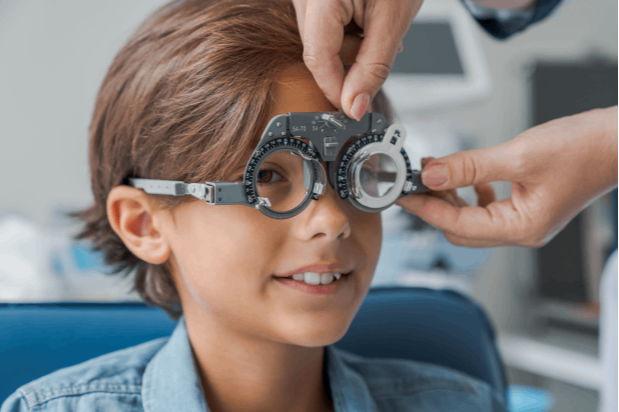All Categories
Featured
Persistent eye conditions, such as glaucoma, macular deterioration, and diabetic retinopathy, need recurring treatment to maintain vision and preserve top quality of life. Efficient management of these conditions entails a combination of clinical treatment, way of life modifications, and normal tracking. Below's exactly how individuals can organize their eye wellness and manage chronic eye conditions effectively.
One of the most vital actions in managing chronic eye problems is adhering to your doctor's recommendations. This includes:
![]()
Using proposed medicines: Take eye decreases, dental medications, or injections as guided to regulate symptoms or sluggish condition development.
Going to normal check-ups: Regular sees to an eye care professional enable prompt modifications to your treatment plan and early detection of adjustments in your condition.
Undertaking required treatments: Some conditions, like glaucoma or retinal disorders, might require surgical or laser treatments to stop additional damages.
Your overall health substantially affects your eye health and wellness. Taking on a healthy way of living can lower the risk of difficulties and improve outcomes.
Consume a well balanced diet: Nutrient-rich foods, such as leafy environment-friendlies, fish high in omega-3 fatty acids, and fruits, canister sustain eye health and wellness.
Exercise consistently: Physical activity boosts blood circulation, which benefits the eyes by guaranteeing they get adequate oxygen and nutrients.
Manage chronic problems: If you have diabetes, high blood pressure, or various other systemic problems, keep them under control to avoid aggravating eye problems.
Avoid cigarette smoking: Smoking boosts the danger of creating or exacerbating chronic eye conditions, consisting of macular deterioration and cataracts.
![]()
Stopping further damage to your eyes is vital in managing chronic conditions:
Wear protective eyewear: Usage sunglasses with UV protection to protect your eyes from unsafe rays and lower the danger of problems.
Limitation display time: Too much screen direct exposure can stress your eyes. Exercise the 20-20-20 guideline-- look at something 20 feet away for 20 secs every 20 mins.
Maintain proper illumination: Stay clear of straining your eyes by ensuring sufficient lights when checking out or functioning.
Recognizing your condition equips you to make informed decisions concerning your treatment. Ask your eye treatment supplier regarding:
The progression and prospective results of your condition.
Symptoms and signs that call for instant interest.
Offered resources, such as assistance groups and instructional materials.
![]()
Coping with a persistent eye problem can be mentally difficult. Consider:
Signing up with support system: Sharing experiences with others in similar scenarios can supply convenience and functional suggestions.
Talking with a therapist: Expert support can assist you manage the psychological influence of vision adjustments.
Conclusion
Handling chronic eye problems calls for a positive and detailed approach. By following clinical advice, taking on a healthy lifestyle, safeguarding your eyes, and seeking support, you can effectively browse the challenges of these problems and maintain your vision. Normal interaction with your eye care service provider is vital to ensure your monitoring plan stays efficient and customized to your needs.
- Comply With Medical Guidance and Therapy Strategies
One of the most vital actions in managing chronic eye problems is adhering to your doctor's recommendations. This includes:

Using proposed medicines: Take eye decreases, dental medications, or injections as guided to regulate symptoms or sluggish condition development.
Going to normal check-ups: Regular sees to an eye care professional enable prompt modifications to your treatment plan and early detection of adjustments in your condition.
Undertaking required treatments: Some conditions, like glaucoma or retinal disorders, might require surgical or laser treatments to stop additional damages.
- Maintain a Healthy Way Of Living
Your overall health substantially affects your eye health and wellness. Taking on a healthy way of living can lower the risk of difficulties and improve outcomes.
Consume a well balanced diet: Nutrient-rich foods, such as leafy environment-friendlies, fish high in omega-3 fatty acids, and fruits, canister sustain eye health and wellness.
Exercise consistently: Physical activity boosts blood circulation, which benefits the eyes by guaranteeing they get adequate oxygen and nutrients.
Manage chronic problems: If you have diabetes, high blood pressure, or various other systemic problems, keep them under control to avoid aggravating eye problems.
Avoid cigarette smoking: Smoking boosts the danger of creating or exacerbating chronic eye conditions, consisting of macular deterioration and cataracts.
- Shield Your Eyes

Stopping further damage to your eyes is vital in managing chronic conditions:
Wear protective eyewear: Usage sunglasses with UV protection to protect your eyes from unsafe rays and lower the danger of problems.
Limitation display time: Too much screen direct exposure can stress your eyes. Exercise the 20-20-20 guideline-- look at something 20 feet away for 20 secs every 20 mins.
Maintain proper illumination: Stay clear of straining your eyes by ensuring sufficient lights when checking out or functioning.
- Inform Yourself
Recognizing your condition equips you to make informed decisions concerning your treatment. Ask your eye treatment supplier regarding:
The progression and prospective results of your condition.
Symptoms and signs that call for instant interest.
Offered resources, such as assistance groups and instructional materials.
- Seek Emotional Assistance

Coping with a persistent eye problem can be mentally difficult. Consider:
Signing up with support system: Sharing experiences with others in similar scenarios can supply convenience and functional suggestions.
Talking with a therapist: Expert support can assist you manage the psychological influence of vision adjustments.
Conclusion
Handling chronic eye problems calls for a positive and detailed approach. By following clinical advice, taking on a healthy lifestyle, safeguarding your eyes, and seeking support, you can effectively browse the challenges of these problems and maintain your vision. Normal interaction with your eye care service provider is vital to ensure your monitoring plan stays efficient and customized to your needs.
Latest Posts
Check Out Exceptional Vehicle Maintenance Services at Montclare Auto Repair – Quality Service Today
Published May 28, 25
1 min read
Specialist Residential Roofing Solutions You Can Trust
Published May 22, 25
1 min read
Shield and Beautify Your Home with Weathercraft's Exterior siding Providers
Published May 21, 25
1 min read
More
Latest Posts
Check Out Exceptional Vehicle Maintenance Services at Montclare Auto Repair – Quality Service Today
Published May 28, 25
1 min read
Specialist Residential Roofing Solutions You Can Trust
Published May 22, 25
1 min read
Shield and Beautify Your Home with Weathercraft's Exterior siding Providers
Published May 21, 25
1 min read